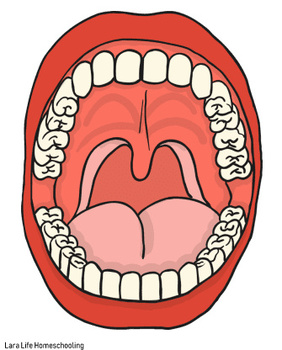Q.1 What is oral cancer?
Oral or mouth cancer includes cancer of lip, tongue, floor of mouth or area between tongue and lower jaw bone, cheek, upper and lower jaw bones, bony/ hard palate and retromolar trigone, a triangular area between upper and lower jaw.
Q. 2 How common is oral cancer?
Oral cancer is the most common cancer amongst Indian males. It is the fourth common cause of cancers in women. However, in some part of our country, it is one of the commonest cancers in women. Every year approximately 1 lakh new cases of oral cancers are detected in India.
Q. 3. How serious is oral cancer?
Oral cancer is not only very common but also a serious problem in India. As per a study, it is the most common cause of deaths due to cancer in our country. Nearly half of patients diagnosed with oral cancer die within one year of detection. The main reason behind this high death rate is that 60-70 percent of these cases are detected in advanced stages.
Q.4 What are the causes of oral cancer?
Tobacco consumption is the most common cause of oral cancer. Tobacco is consumed in various forms in our country. It may be chewed, applied or smoked. Tobacco is chewed in form of mawa, khaini, pan, pan masala etc. It may be smoked in the form of bidi, Hukkah, cigarette etc. and applied on the surface in the form of paste or tooth powder. Mishri, a tobacco containing teeth cleaning powder is commonly used in central and southern India. Gutka and areca nut, commonly known as supari also cause mouth cancer and rampantly used in some part of our country. All these forms are harmful and cause cancer. Alcohol is another cause of oral cancer especially of floor of mouth cancers. Risk of cancer is increased many folds when both tobacco and alcohol are consumed together. Sharp tooth and ill-fitting dentures causing repeated trauma can also cause oral cancer. Poor oro-dental hygiene, HPV virus infection, dietary deficiencies are also reported as causative agents for oral cancer.
Q.5 What are the Symptoms / Warning Signs of oral cancer?
1. Non healing ulcer i.e., an ulcer which does not heal despite treatment
2. Any rough area inside mouth
3. Any growth that bleeds on touch
4. White patch or red patch inside mouth
5. Sudden fall of tooth
6. Change in size of dentures
7. Altered speech
8. Difficulty in eating
9. Pain at the back side of throat radiating to ear
10. Neck swelling
11. Skin ulcer or swelling over face
Q. 6 What is leukoplakia?
Leukoplakia is a white patch which can appear anywhere inside mouth. It is commonly seen in people who consume tobacco in any form. However, it may occur in people who have never consumed tobacco in past. It is a premalignant condition, i.e., it can convert into cancer if left untreated.
Q. 7 What are the other premalignant conditions?
Erythroplakia and oral submucous fibrosis (OSMF) are other premalignant conditions which have a risk of conversion into cancer. Erythroplakia is defined as a red patch inside the mouth which may occur alone or along with leukoplakia. It has high chances to convert into cancer and should not be ignored. OSMF is a condition commonly seen in people who consume gutka and supari. In this condition, mouth opening is gradually reduced which in addition to increased risk of cancer, makes it difficult to detect. Erosive type of lichen planus is also reported to have a risk of malignancy.
Q. 8 How oral cancer is diagnosed?
a. Clinical Examination
Patient is examined clinically by the oncologist and extent of tumor is determined. Based on
clinical examination findings further tests are ordered.
b. Biopsy
Biopsy is done to confirm the presence and type of cancer. It is often done as an out-
patient procedure. In this test, a small piece from the growth is taken and sent for
pathological examination. Biopsy is essential before starting cancer treatment.
c. Imaging
Imaging is done to know the tumor extent in all dimensions including deeper tissues. CT
scan, MRI or PET CT is done based on tumor location, site and size.
Q. 9 What are the stages of oral cancer?
Tumor is staged based on clinical and radiological findings. It is staged as early stage (stage I/II) or advanced stage (stage III/IV).
Q.10 Can oral cancer be cured?
Oral cancer can be cured if detected early. Cure is possible even in advanced stages but success rate is less as compared to early stages. Hence early diagnosis and treatment is crucial for successful outcome.
To know about treatment of oral cancer, read my next blog Commonly asked questions about Oral (Mouth) cancer: Part 2 – Treatment & Prognosis.(Will be publish next week)
Dr. Shilpi Sharma
Thyroid & Head Neck Oncosurgeon
MS, DNB, Fellow, MCH Head Neck Surgery




